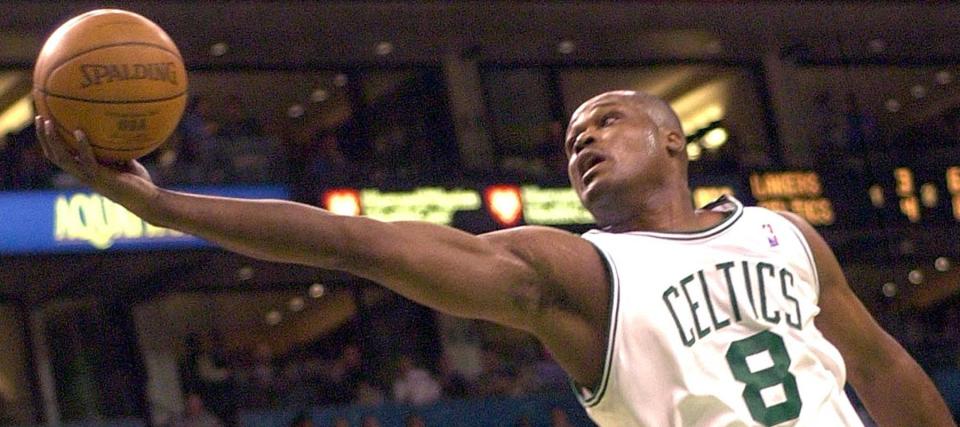NBA star Antoine Walker blew $108M in career earnings — by wanting to be like Jay-Z, Puff Daddy. 3 key lessons from his plummet into bankruptcy (and his recovery)

Buckets and big bucks couldn’t keep NBA star Antoine Walker from the bottom. A 12-year professional career earned the star player $108 million in salary — but it only took two years after his playing days ended for Walker to lose everything.
On the “I Am Athlete” podcast, Walker revealed how trying to keep up with the luxe lifestyle romanticized in hip-hop culture by rappers like Jay-Z and Puff Daddy led to his spectacular fall. After years of lavish spending on cars, clothes, gambling and real estate, Walker eventually had to declare bankruptcy in 2010.
Don't miss
Rich young Americans have lost confidence in the stock market — and are betting on these 3 assets instead. Get in now for strong long-term tailwinds
Here's how much money the average middle-class American household makes — how do you stack up?
You could be the landlord of Walmart, Whole Foods and CVS (and collect fat grocery store-anchored income on a quarterly basis)
Thankfully he’s now back from the brink. Walker has since worked as a TV basketball analyst and a consultant for Edyoucore, a company that focuses on financial literacy for athletes. And he counsels others to take accountability for their monetary decisions, and to consider the advice of professionals — CPAs, lawyers and agents — who can act as checks on those spending impulses.
Here’s what his fall and slow climb back can teach ordinary earners.
Save aggressively
Walker says he wasn’t used to having money and so as soon as he was flush, he picked up some aggressive spending habits. If you’re dreaming of a lavish lifestyle, it’s important to know the value of saving now and putting that money to work for you.
Starting and maintaining a habit of consistent saving and wise investing will allow compound interest, dividends and capital gains to do the heavy lifting.
But to realize tomorrow’s dreams, you may have to live below your means today. Think about ways to sock away surplus funds into high-yield savings accounts, your employer’s 401(k) or other investment vehicles.
Read more: Shopping without a cash back credit card is just losing money — here's how to make sure you don’t miss out on serious savings
Learn to say no — to friends and yourself
Walker previously told CNBC he had to learn to say “no.” It’s helpful advice that’s not just for athletes or lottery winners contending with hangers-on. For the rest of us, saying “no” might mean reducing charity contributions or passing on that Friday happy hour with co-workers.
Paying yourself through a savings routine will set you up for both your long-term aspirations and the good charity works one can do with that nest egg down the line. Today’s polite “no” could mean a more valuable “yes” later.
Set a budget, and seek out guidance
It’s important to create and stick with a budget. Online tools can help, and most will start by asking you to list your income and expenses, including rent or mortgage, utilities, food, transportation and entertainment. Once you’ve accounted for money that can handle unexpected expenses, your monthly financial picture will come into focus and help set your path.
That’s where Walker’s next piece of advice comes into the picture. He suggests that anyone with disposable income should lean into the expertise of trained professionals.
If you have enough surplus funds that might be at risk without professional intervention, consider a certified financial planner who can guide you toward protecting and growing those assets through tax-advantaged investments.
What to read next
Ben Affleck says he and Matt Damon blew through the $110K they made from Good Will Hunting on jeeps, 'party house' — 4 tips to make your money last
Millions of Americans are in massive debt in the face of rising rates. Here's how to get your head above water ASAP
Scrubs to riches: A California nurse just went viral showing how she paid off her student loans by 27 while making up to $500K a year — here are 5 ways to build wealth without a wild salary
This article provides information only and should not be construed as advice. It is provided without warranty of any kind.

 Yahoo Finance
Yahoo Finance 